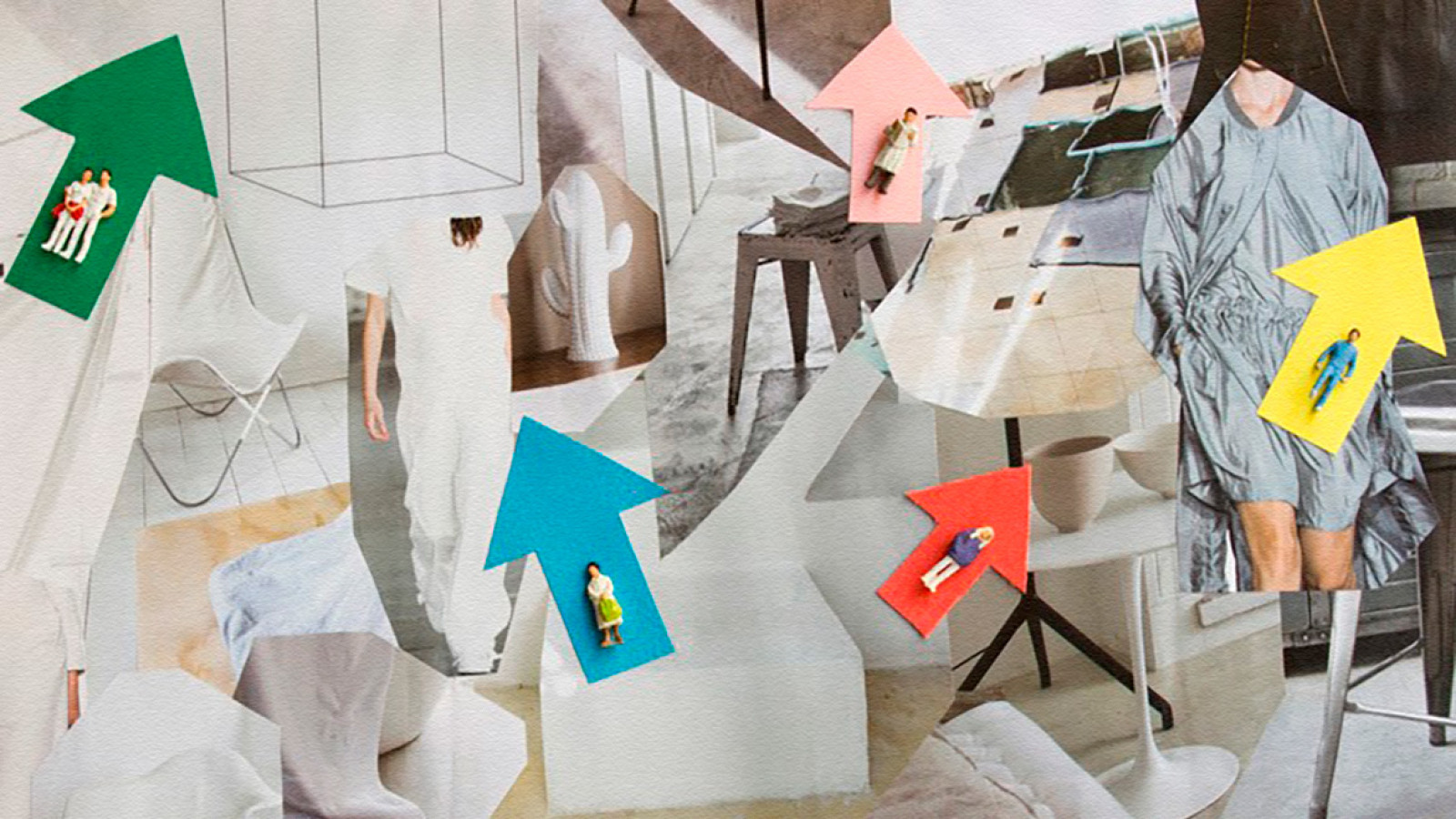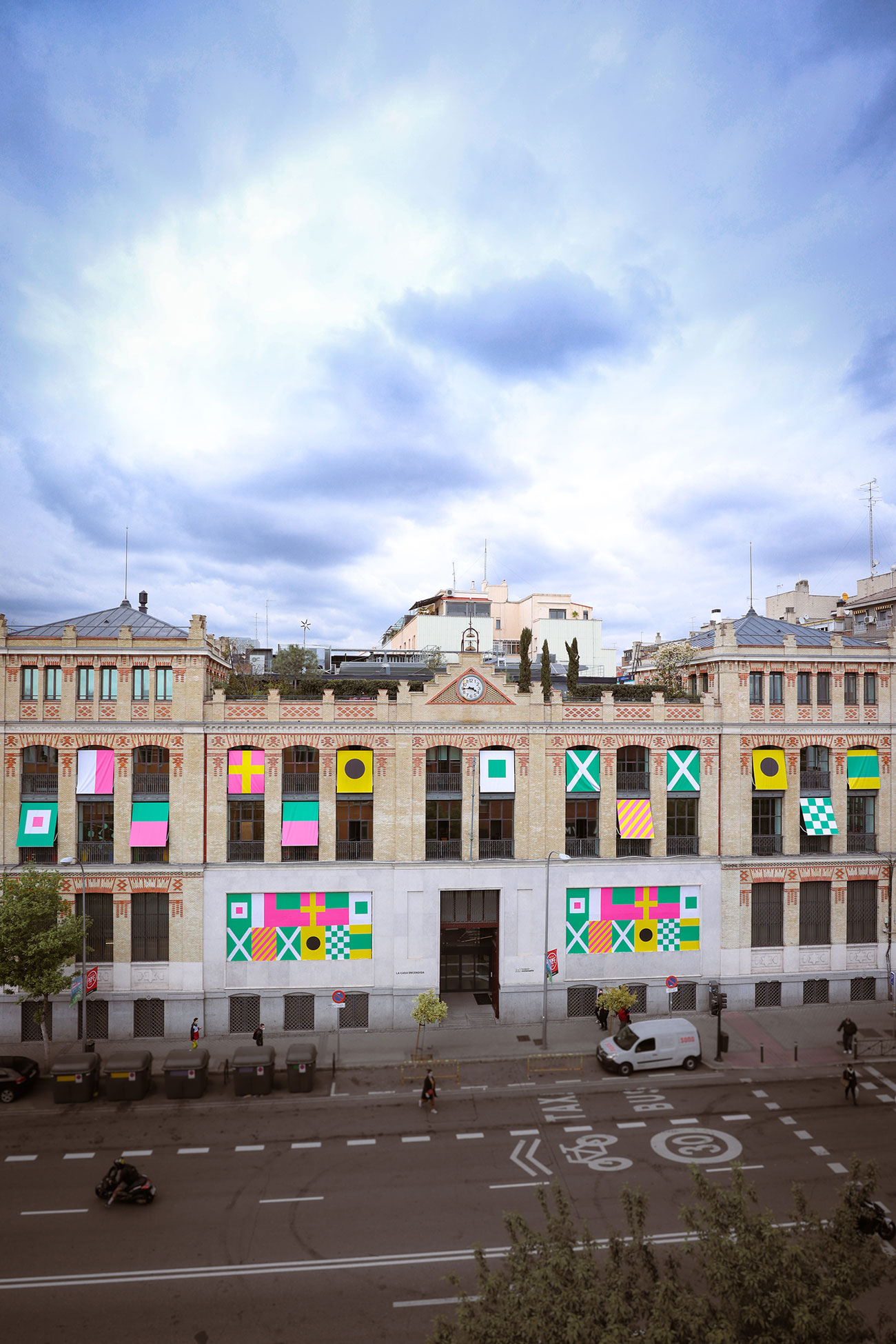II) The Revolution of Spaces: Indirect Object
Within the programming of
The Revolution of Spaces: Indirect Object| Duration: | 4 hours |
-
Workshop: 10 am–2 pm
“Alt Shift” with Jordi Canudas (Barcelona)
A workshop open to everyone where participants are invited to constructively experiment and improvise with materials found in a specific area. This workshop examines materials and their sources. By seeking, acquiring and retrieving elements available in the vicinity of La Casa Encendida, participants will create a stockpile of materials they can use to intervene in the physical space of La Casa.
-
Screening: 2–6 pm
Continuous screening of the documentary The Human Shelter. Directed by Danish filmmaker Boris B. Bertram, this work is the product of a two-year film expedition round the world to determine “what makes a home”, both now and in the future.
-
Lectures: 6–9 pm
-
“Pushing the Horizon: Design as an Agent of Industry Transformation” by Laura Clèries (Barcelona)
In a world of new manufacturing technologies, new materials and new planning methods, Laura wonders what the future concepts of design will be. Although we tend to think of design as a way of materialising ideas, new roles are emerging that contemplate the possibility of design based on both tangible and intangible realities. Moreover, consumers demand new products and new services that reflect the new values of our increasingly global, technified society and critical environmental context. Laura Clèries will open the Indirect Object sessions by exploring the trends that will determine the future of the industry, from data-based design to the revolution of biomaterials.
-
“Vegan Design: Tracing Morality in an Integrated World”, Erez Nevi Pana (Austria and Tel Aviv)
Nevi Pana will share his vision with us at Indirect Object. Plywood, brushes, sandpaper, safety gloves, MDF, cardboard, paint rollers, glossy paint, crayons, chalk, wood wax, canvas, rubber and certain types of plastic are just some examples of common products and materials that can be used in the design process or to materialise a finished object. Each and every one of them may contain animal products or elements obtained from live domesticated animals. But what happens when we start to wonder if it’s possible to achieve the purity and virtue of vegan, 100% animal-free design?
-
“Data and Space” by Domestic Data Streamers (Barcelona)
Pau García, co-founder of Domestic Data Streamers, will explain the strategic work of this multidisciplinary team (consisting of anthropologists, psychologists, engineers, designers and communications experts), which uses design, art, science and technology as the principle tools for creating new methods of connecting people and information by collecting, visualising and interpreting data.
-
“We Have Broken Your Business, Now We Want Your Machines!” by Studio Unfold (Antwerp)
This was the ironic reply of British writer and digital strategist Russell Davies when The Guardian Media Group asked him to comment on the repercussions for the journalism industry of the Newspaper Club, a company he co-founded in 2009. This digital website service was one of the first to reclaim the depreciated newspaper medium from the news business and liberate its pages for public appropriation. By applying internet logic and methods to an old-fashioned infrastructure, it proved that people were still willing to pay for a traditional newspaper; they just didn’t want to pay for news. This example makes us wonder what might happen if we could take the industrial infrastructure of mass production and turn it into a networked device for manufacturing individual, customised objects. How can we devise new ways of creating, manufacturing, financing and distributing in this ever-changing context? A context where we find a fusion of aspects of the pre-industrial artisanal economy and industrial production methods that rely on sophisticated technology and digital communication networks. A context that has the potential to shift the balance of power from industrial manufacturers and infrastructure regulators to individual designers and consumers.
-
“Think Global, Dig Local” by Atelier NL (Eindhoven)
Over the last decade, Atelier NL has developed a unique research methodology that turns local clay and sand into ceramic and glass objects, which they use to analyse the properties and stories hidden in the earth. The exhaustive analysis of these materials on multiple scales—from the landscape as a whole to the molecular level—has become their philosophy. At Indirect Object, they will tell us about their experience, vision and outlook.
-
-
Biografías Ponentes (I) (pdf, 414.31 KB)
Download

